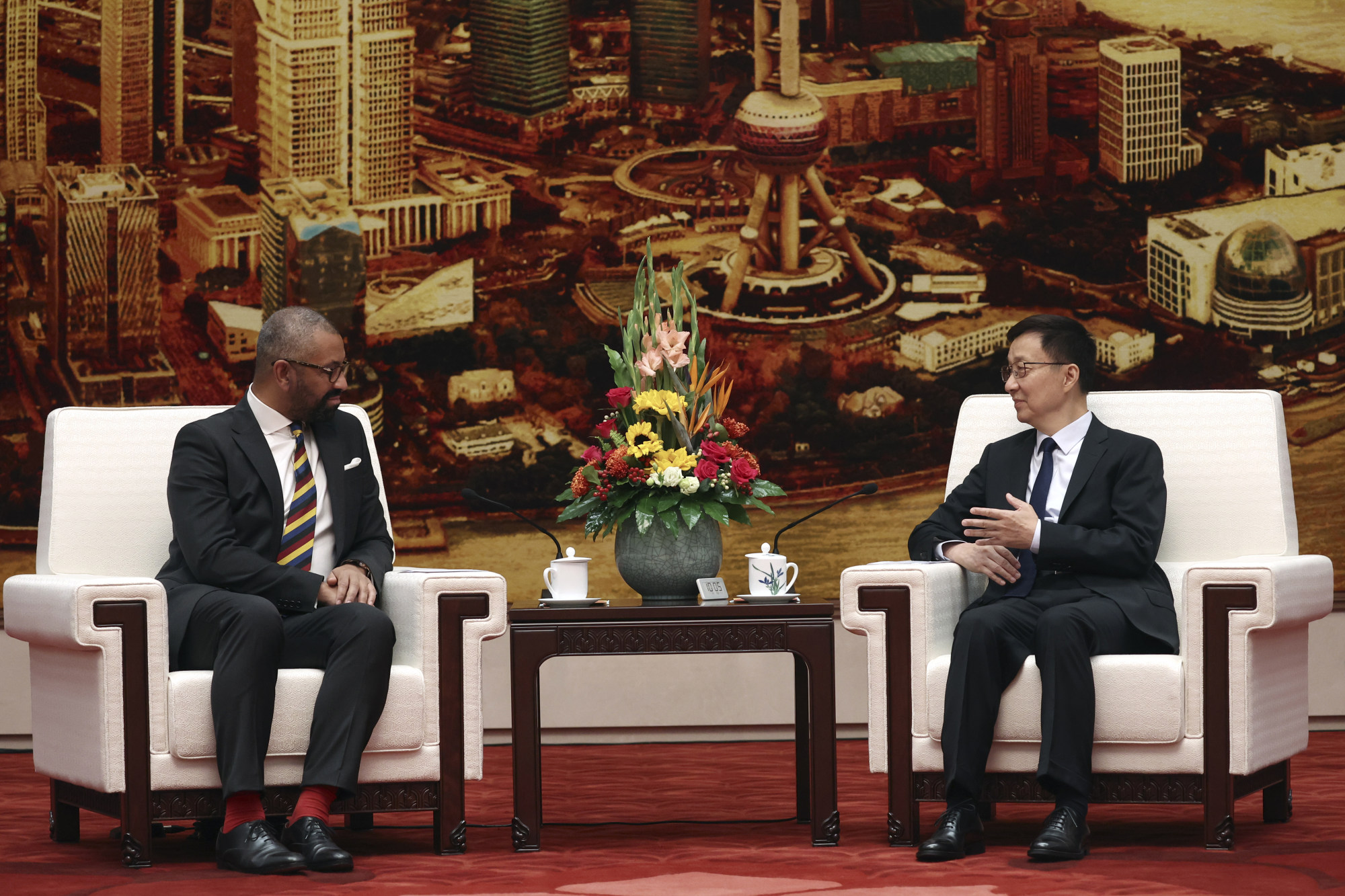
Hong Kong slams UK over ‘slander’, after British government says city’s legal system at ‘critical juncture’ under national security law
- Authorities issue strongly worded statement, hitting back at claims made over rights and freedoms in Britain’s latest six-monthly report on Hong Kong
- In paper, British Foreign Secretary James Cleverly levels criticisms over ‘opaque national security law’ and its impact on legal system
Hong Kong slammed the UK on Tuesday over “slander”, after the British government said the city’s legal system was at “a critical juncture” under the application of the national security law and rights were “under significant pressure”.
Authorities issued a strongly worded statement late in the evening, hitting back at claims made in Britain’s latest six-monthly report on Hong Kong.
“The government strongly disapproves of and firmly opposes the United Kingdom for recasting an old trick, using a so-called six-monthly report to … slander the city. Its politically motivated gimmick that overrides the rule of law has been obvious to all,” a spokesman said.
“The Hong Kong government once again urges the United Kingdom to understand the truth, obey international law and basic principles of international relations, and immediately cease interfering into Hong Kong affairs that belong solely to the internal affairs of China.”
Beijing envoy protests against British criticism of Hong Kong security law raid
Hong Kong also refuted claims that the city’s electoral revamp, including changes for district councils, had limited the ability of the legislature to “hold the executive to account”.
It said the British report “misunderstood” the overhaul, stressing that it was necessary to “right the wrong” to allow capable, patriotic district representatives to serve in the councils. The coming poll will be held in December.
The spokesman slammed Britain for ignoring the role of the Beijing-imposed national security law in restoring normality in daily life and economic activities in the city.
Applications for Hong Kong path to UK citizenship show no signs of slowing
“The successful promulgation of the National Security law has enabled citizens to resume their enjoyment of rights and freedoms denied to them during the period of serious violence and Hong Kong’s version of the ‘colour revolution’ from June 2019 to early 2020, swiftly restoring social stability and safety in the city,” he said.
The shift “from chaos to governance” experienced by residents and businesses operating in the city had been “indisputable”, he said, adding Britain should not smear the city’s national security measures as it had recently passed its own such act this year.
The report, which prompted the strongly-worded response, said that Hong Kong’s legal and judicial systems were “at a critical juncture”.

“Hong Kong’s courts remain independent, but they are having to adjudicate on an opaque national security law that places the authority of the chief executive on security matters above that of their own,” said British Foreign Secretary James Cleverly in the foreword.
Cleverly’s criticism came less than a month after he became the first senior British minister in five years to visit China.
The top diplomat met Chinese Vice-President Han Zheng and held talks with Foreign Affairs Minister Wang Yi in a bid to repair relations between the two countries.

“British national Jimmy Lai [Chee-ying]’s national security trial has been further delayed. His prosecution is highly politicised and I raised his case in Beijing last month,” Cleverly said.
“The international community is paying close attention to his case and many others. We urge the Hong Kong authorities to uphold the rule of law and to comply with international norms and standards.”
Media mogul Jimmy Lai has been detained over conspiring with foreign forces to endanger national security. In May, the High Court rejected his request to terminate his national security trial, dismissing an argument that judges selected to hear his case might be biased against him.
The latest report, which covered the first half of the year, said the United Kingdom continued to request consular access to Lai, but was denied by the Hong Kong authorities on the basis that they did not recognise dual nationality.
Beijing to ask consulates in Hong Kong to provide employee details by October 18
Between January and June, at least four national security law cases concluded. All were tried without a jury and all seven defendants were found guilty.
The report accused authorities of extending the application of the security law “beyond genuine national security concerns”, citing the government’s use of legal routes to attempt to ban the protest song “Glory to Hong Kong”.
The report also dedicated a chapter to the electoral changes for district councils announced in May. It said the reduction of directly elected seats was a “further step away from universal suffrage”.
In the conclusion of the paper, the British government said its former colony’s rights and freedoms “remained under significant pressure”, claiming that the threat of prosecution suppressed free speech and stifled opposition.


